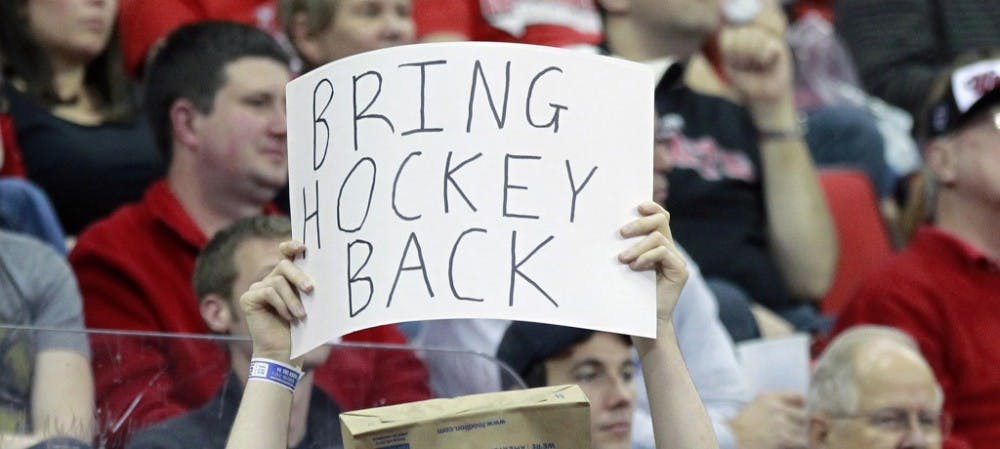It took 119 days, but the National Hockey League (NHL) lockout did eventually end. Once the collective bargaining agreement (CBA) had expired, franchise owners and NHL commissioner Gary Bettman argued with the National Hockey League Players’ Association (NHLPA) over financial issues. Both sides were stubborn in holding their stance, dragging out the lockout and preventing the start of the season. Players went overseas and fans turned to other sports. Once a tentative deal for a new CBA was made, hockey fans rejoiced.
Twitter blew up with fans’ snapshots of players who were spotted at airports as they returned to the USA. Arenas were packed before the season even began for team practices. There had been questions of whether fans would return, but their clear enthusiasm quieted some of these qualms.
This year’s season will continue for 48 games instead of the full 82 games. The last lockout for the 2004-2005 season shut down the league for the full season. So to look on the bright side, at least this year the NHL did not lose its entire season. Fans are still disappointed and some are angry. This is because the fans and local businesses were the real victims of the lockout.
Businesses in many hockey-heavy towns lost business because of the season’s postponement, especially in Canada. Events that brought in hockey fans also had to be cancelled. The 2013 Winter Classic was cancelled due to the lockout, which affected entire communities. Local Michigan business owners lost the money they spent in preparation for the event that would have catered to over 115,000 hockey fans and also a week of booming commerce. Even the players knew it was the fans that they hurt. The Columbus Blue Jackets donned jerseys with “Thank You Fans” across their backs during warm-ups. Some hockey players, such as the Montreal Canadiens’ Josh Gorges, organized pickup games with fans in order to remind everyone why they play: for the love of the game.
The NHL tried to rectify the situation with a formal apology and by offering free concessions and discounts. However, once these short-term perks disappear, will fans still be as devoted to the franchise that shunned them for so long? Die-hard hockey fans will remain, but once this new agreement expires, it won’t be long before their faith is shattered again. The NHL needs to take stronger, specific action in order to repair the relationship that they damaged. A Thank You Fans campaign, while a nice gesture, will require more sincerity from the league in order to maintain the fan base. Fans are essential to the existence of the league and allow the game to continue being played at its highest level.


